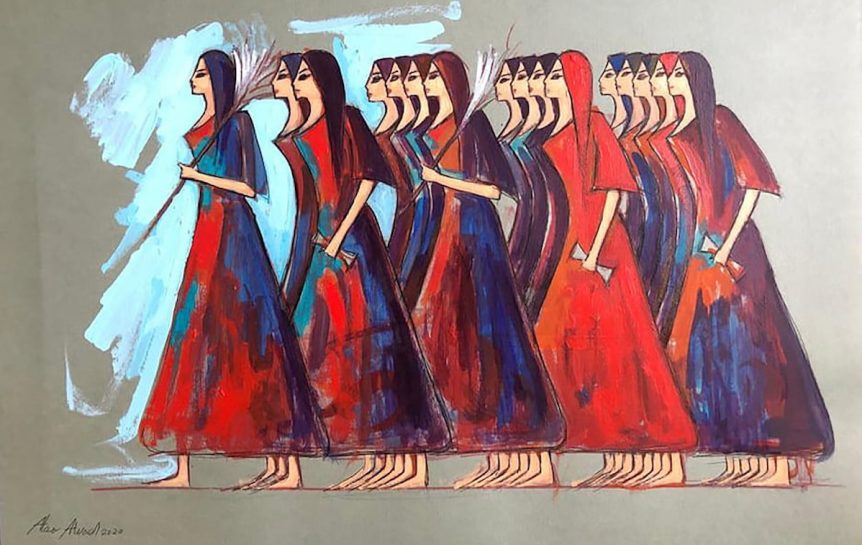The undersigned human rights organizations reject the government’s draft of the Personal Status Law, published on February 23rd and presented before Egypt’s House of Representatives pending approval, joining over 300 feminist organizations and public figures issuing statements renouncing the amendments. Civil society, including feminist and human rights organizations, were completely excluded from the amendment drafting process.
Egypt boasts of forming an inclusive government with more women ministers and women representation in parliament, while in practice it undermines women’s rights. Despite the claim by the country’s policymakers that the draft law defends women’s interests while renewing religious discourse, the proposed amendments to the Personal Status Law rollback the relative gains made by Egypt’s feminist movement over the past century.
The proposed Personal Status Law embraces a regressive philosophy against Egyptian women, giving male guardians the power to deny them many of their basic human rights . Under the law, women are deprived of the legal status to conclude a marriage contract. The male guardian is given the right to judicially annul the marriage without the woman’s consent. The draft law also fails to certify women’s right to bear witness for marriage contracts, and seizes the mother’s guardianship over the funds of her minor children. Guardianship is granted to the father and grandfather alone, even if the wife is the financial supporter of the entire family. Even educational guardianship over their own children is denied to women, this certainly includes women ministers or representatives in government. Christian women also face additional discriminatory regulations, including the denial of custody over her children if her husband converts to Islam. Overall, the new law is replete with restrictions or negations of women’s rights.
The undersigned organizations call on the government of Egypt to adhere to the constitution and international human rights covenants by granting women full citizenship when proposing any draft law, especially on personal status matters, and to include all concerned parties, especially women’s and human rights organizations.
Civil society has been deliberately marginalized by the Egyptian government in formulating legislation over the last seven years, and laws are issued without any civil society participation or input. The authoritarian regime of president Abdel Fattah al-Sisi exercises extensive control over the government and its legislative institutions, as well as the media. Political opposition is excluded from the governing process, with political opponents imprisoned or exiled. There are no indications that a just law for women, appropriate for a modern society, will be issued soon in Egypt; if the government had any inclination to protect women and uphold their fundamental rights, such a law would have been issued years ago.
Signatory Organizations:
- Cairo Institute for Human Rights Studies
- Association for Freedom of Thought and Expression
- Arabic Network for Human Rights Information
- Egyptian Front for Human Rights
- El Nadim Center for Rehabilitation of victims of violence and torture
- Freedom Initiative
- Committee for Justice
Photo: Alaa Awad
Share this Post

